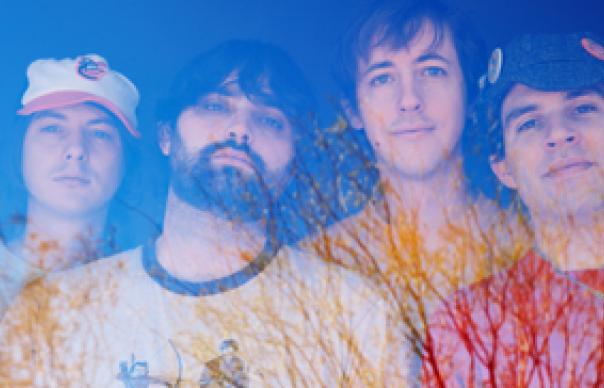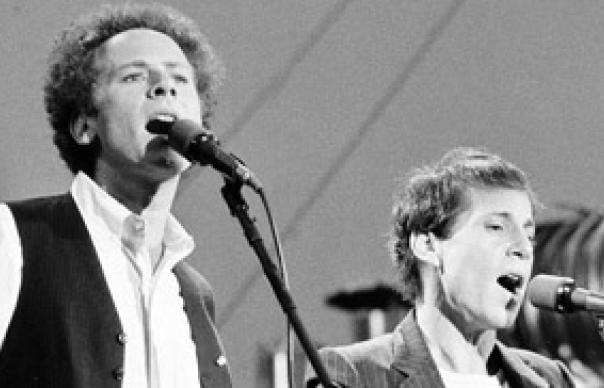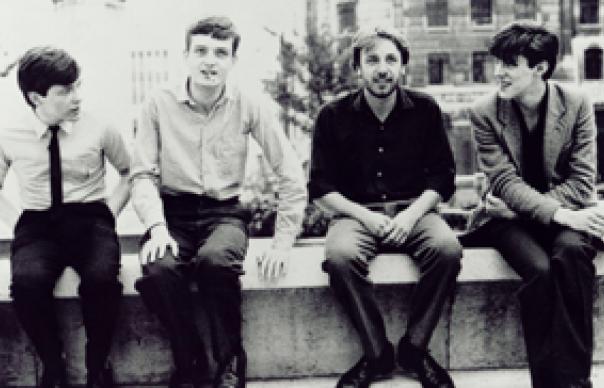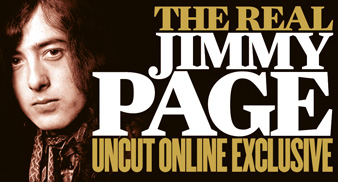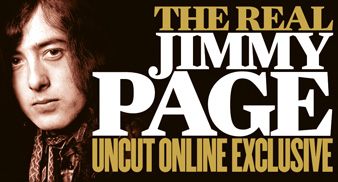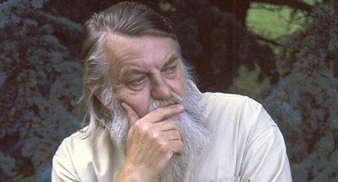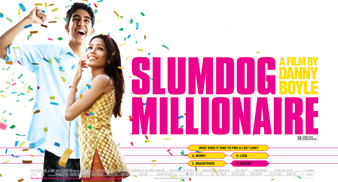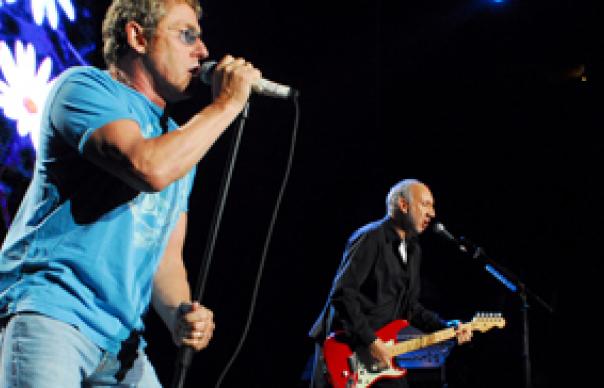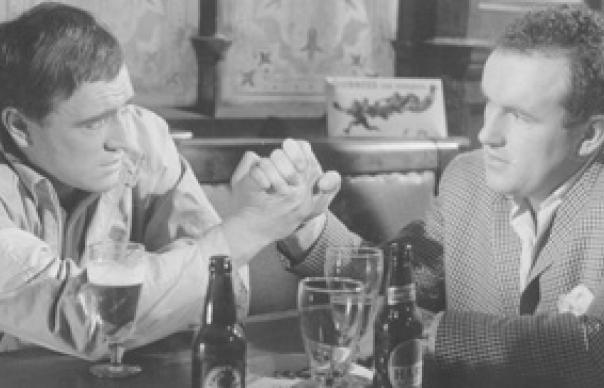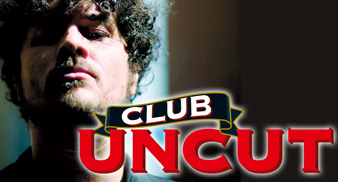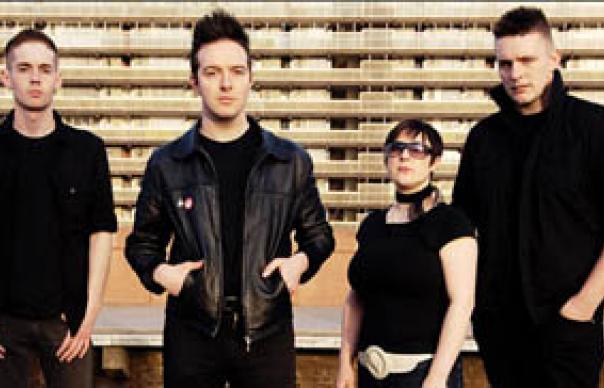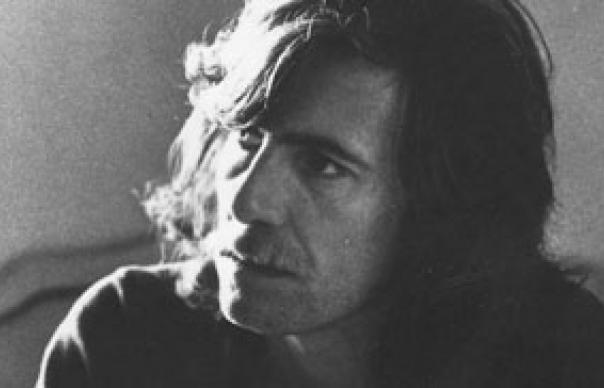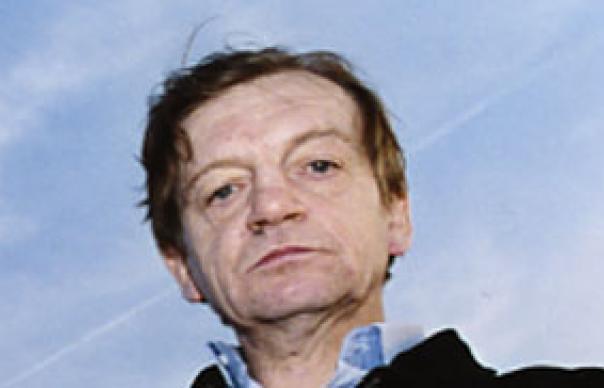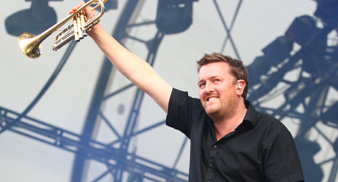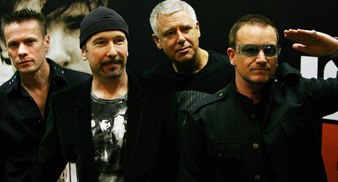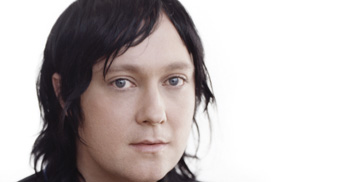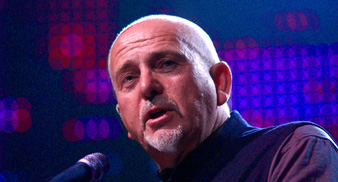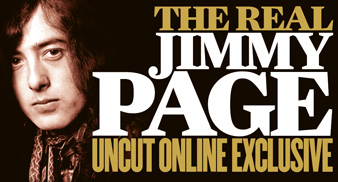In the January issue (on sale now) of Uncut , we celebrated the career of rock’s greatest and most mysterious guitar hero through the first hand accounts of the people who know him best.
Here at www.uncut.co.uk, we’ll be posting the full and unedited transcripts from those interviews, including words from Robert Plant, Jeff Beck, Roy Harper, Steve Albini and more.
PART 7: JOHN PAUL JONES
Zep’s bassist and arranger whose friendship with Page extends back furthest of all: to session work in Swinging London.
***
UNCUT: Well, firstly, what did it feel like to be playing with Jimmy again at the O2 Arena?
JPJ: “Pretty damn good. We put a lot of work into it – I had done quite a lot of playing with him, obviously, in the months preceding up to it – and it was really, really enjoyable. It was good fun revisiting the numbers and just playing with a really good player again.”
What’s your assessment of how good he is these days? Is he as good as the Page of old?
JPJ: “Yeah, he really is. He really is. He was always one of my favourite guitarists – I know it sounds obvious, but he was – and as soon as we started in rehearsal, I was just amazed to hear how he’d kept everything and actually improved, I thought. He seemed to have grown since I saw him last.”
It’s difficult for him, isn’t it, because some of those songs have upwards of five or six tracks of guitar on the original recordings – particularly things like “Achilles Last Stand”. So in order to be able to perform them live, at his age, he’s really got to have all his musical wits about him.
JPJ: “He has, yeah, and he certainly did have. Obviously we always used to do songs that had a lot of extra, overdubbed parts, and we used to have to come to some arrangement about doing them live. So we’re kind of used to it, but yeah, you’ve got to be pretty nimble to cover all the important parts so that the song makes sense. And he did it without a second thought, it seemed.”
He came on wearing shades. Is that because he was nervous?
JPJ: “Ha! No, he seems to like wearing shades… for pictures and things like that. It’s a look he seems to go for.”
I know that Ahmet Ertegun was the reason for the reunion talking place, but what do you think it actually meant to Jimmy himself?
JPJ: “Well, obviously Ahmet Ertegun meant a lot to us all. We all wanted to be on his record label in the first place, and so, yes, it was a tribute to a very important man. But the fact that we did a full Zeppelin show, almost… albeit a short one, at two hours… I mean [Jimmy] was very, very happy to do it. I guess it probably… I don’t know, I’m trying to think of your question, it’s a bit open-ended… It’s probably similar to what it meant to all of us, which is: it’s nice to be able to do it, to prove to yourself that you can do it.”
Should we read anything into the fact that Jimmy oversees the releases of things like How The West Was Won and the DVD? Does that mean that he cares more about the Zeppelin legacy than you and Robert?
JPJ: “No, it’s not true that he cares more about it. It’s true that he certainly puts more work into it. I mean, he was the producer in the band, and so it’s more a continuation of those duties, I suppose. But it was his original vision, the band, and it obviously holds a very special place in his heart. But it holds a special place in all of our hearts.”
Can you remember meeting Jimmy for the first time?
JPJ: “It was… I can’t remember what the session was, but it was probably about 1964 and we were booked on the same session. Decca or somewhere like that, up in Broadhurst Gardens [in West Hampstead] where it used to be. I was just really happy to see another young face.”
Oh, right, was it all old hands?
“It was all old hands. I think he was the youngest session musician until I came along. We were always really glad to see each other on the sessions, because it meant that you had a young, hip rhythm section. The drummer would be older, I suppose, and [guitarist] Big Jim Sullivan was older, but we were relatively young compared with all the other session musicians.”
Did he have any kind of reputation, the way that Eric Clapton or Jeff Beck did?
JPJ: “Oh yeah. I mean, I remember him having a reputation almost before I turned professional [in early 1963], when he was with Neil Christian & The Crusaders. It was always, ‘You’ve got to hear this guy.’ In fact, I never actually heard him before we worked together, but yes, I knew of his reputation.”
So why was he doing this session work, rather than being in a band himself and travelling up and down the M1 doing gigs?
JPJ: “Well, he did that first. I’m not quite sure how he got into sessions – I got into them via Tony Meehan – although I think one of [Jimmy’s] early sessions was on ‘Diamonds’ [by Jet Harris & Tony Meehan, recorded late ’62]. He’s on rhythm guitar on ‘Diamonds’. I wasn’t on that, but I was in Jet and Tony’s road band in 1963. In those days, to be a session musician was considered the pinnacle of your professional music career. If you got a foot in, at that early age, you kind of held on to it.”
He’s been quite evasive over the years about what exactly he played on – The Kinks, The Who, the Stones. Do you think it’s because he genuinely can’t remember in a lot of cases, or does he like there to be a bit of mystique, a bit of speculation?
JPJ: “Ha! Well, a little bit of mystery is not such a bad thing. But to be honest, we played hundreds and hundreds of sessions, so it’s quite reasonable not to remember. I can’t remember three quarters of the sessions I was on.”
He’s often described as a very softly-spoken chap, perhaps a bit withdrawn. What were your first impressions of him?
JPJ: “He was very passionate about music, which is why I immediately took to him. Very knowledgeable about music, too. About old records. He was always very interested in recording. We were kind of geeks in those days, in a way. At the end of a session, most of the musicians would sit back and read their golf magazines, but we would always go into the control room to listen to playbacks and to watch the engineers, watch the producers. We both wanted to know how things were done. He was quiet, and he was reserved…”
Is he shy, in the classic sense?
JPJ: “He is. Yeah, he is. He’s happier in a music environment than in any other environment, I think.”
But does it make sense that he got two boisterous characters – Robert Plant and John Bonham – into Led Zeppelin? Does he like surrounding himself with louder, more gregarious people?
JPJ: “They were just perfect for the band. I don’t know if he actually surrounds himself with louder people. I mean, I was in his band and I’m not particularly loud and gregarious… No, it was good because he had this vision for the band after he’d been with The Yardbirds. He knew what he wanted to… he knew what it wanted…”
He knew what he wanted it to be.
JPJ: “What he wanted it to be. Thank you so much.”
And how much did he know? How much did he have worked out in his head in advance?
JPJ: “Well, as I say, he’d been with The Yardbirds. He had this whole thing about ‘a dynamic rock band… a whole light-and-shade thing.’ Which was pivotal, and it informed every musical decision that he made. I mean, there weren’t dynamic rock bands in those days. Everything was either a soft, folky-rock type thing, or just blasting all the time. It was very important to him.”
Did he have a sense of humour? Was he a funny guy to be around?
JPJ: “Oh yeah, of course. We had a lot of fun times.”
I’m just intrigued by the idea of the quietest guy in the room being the one with the most dominant personality. Was that the case in the studio? Was he giving orders and instructions?
JPJ: “No, no, in the studio it was very democratic. Basically, it’s like, if you buy a dog you don’t bark yourself. The band was made up of people who were good musicians and good performers, and he let us get on with it. We would all make a lot of decisions. But he was in charge of the overall sound.”
I guess when you worked together on sessions, you would have seen him playing his guitar either sitting down, or standing on one spot. And yet he developed into one of the most flamboyant stage performers that rock has probably ever known. Did you know he was going to do that, or did it just evolve, or what?
JPJ: “No, I didn’t know he was going to do that. Visually, he was fantastic. It soon became obvious once we started doing a few shows. But he gets totally immersed in it. It’s not sort of ‘worked out’. He just does it. That’s how the music comes out and that’s how he plays.”
So the music is sort of playing him, in a way?
JPJ: “It’s all part of the same thing. He’s not really thinking about anything else. He’s very, very focused onstage.”
So he’s not thinking, “I’ll probably look pretty cool if I stand like this…”
JPJ: “Not really, no. I don’t think so. I mean, the focus is very intense in a Zeppelin show, onstage. I don’t really notice what else is going on. But he’s more intense than anybody, I think.”
Was there a time when you started to think of him as a very good producer? “Whole Lotta Love”, perhaps?
JPJ: “Yeah, absolutely. The backwards echo stuff. A lot of the microphone techniques were just inspired. Using distance-miking… and small amplifiers. Everybody thinks we go in the studio with huge walls of amplifiers, but he doesn’t. He uses a really small amplifier and he just mikes it up really well, so that it fits into a sonic picture.”
Was recording an easy process? With Led Zeppelin in the studio, that’s a lot of creativity flowing around, so surely some people’s ideas must have been rejected in favour of other people’s?
JPJ: “Well, yeah, but generally that was done as a band. We seemed to know which ideas would work and which ones wouldn’t. You’d try an idea, and if it didn’t work, everybody just went, ‘Nah’. And then, okay, let’s try something else. We didn’t have to be told. It’s the professional way of working, and it’s very easy to do it like that, and nobody’s feelings are hurt.”
When Zeppelin formed, did Jimmy already have a close relationship with Peter Grant?
JPJ: “Yes.”
How did that relationship work? They seem, from what I’ve heard, such complete opposites as human beings.
JPJ: “No! [sounds puzzled]”
Were there a lot of places where their personalities were in sync?
JPJ: “Well, yeah… [even more puzzled].”
You know what I mean, though. A big, huge, East End hard-man and a sort of waif-like, Byronic rock guitarist…
JPJ: “[Laughs] Yeah… yeah… Well, Peter Grant used to share this office with Mickie Most, which was like fifty foot long, and Peter was up one end and Mickie was up the other. I was the musical director for Mickie Most, so that was how I met Peter. Peter was a very sensitive man. He was a very, very smart man. People just think of his size and his reputation, but actually he never had to use his size. He could out-talk anybody, you know. And I think [he and Jimmy] got along intellectually. They both had this great love of art, as well. Art deco, art nouveau… that whole sort of period. They used to spend a lot of time touring antique shops together when we were on the road. They were both collectors. So yeah, they had a lot of things in common. I know Peter trusted Jimmy’s vision. When Peter trusts you, he doesn’t question you. He just decides that you’ve got the right idea, so he’s going to put all his resources behind you. And that’s what he did with Jimmy and with Zeppelin.”
And what did Jimmy get out of the relationship, apart from having a very shrewd manager?
JPJ: “Yeah, well, [laughs] that’s the biggest thing… He had somebody who he could talk through things with. A confidant, I suppose. But a very shrewd manager, if I may say so, is not a bad thing to have.”
Did Jimmy in the ’70s, when Zeppelin must have been a totally surreal experience to go through, would you say he was someone who lived in the real world? Did he read newspapers? Did he know what was going on with Watergate or whatever?
JPJ: “Sure. Yeah, yeah. We all did. We all lived in the real world as much as you can. I mean, it is a bit of a bubble that you travel around in, but we were all pretty well informed.”
When did you find out, and how did you find out, that he had an interest in Aleister Crowley and the occult?
JPJ: “Quite early on. He was always talking about it. I didn’t actually have the interest in it, so I kind of left it to him. I knew he’d bought a house [Boleskine House, Crowley’s former country manor seat, which Page purchased in 1970]. He didn’t talk about it much with the band. It was a private thing.”
You didn’t go to Boleskine House?
JPJ: “No, no, I never went up there.”
But I mean, did you have a mental picture of him wearing a cape and casting spells and things?
JPJ: “[Laughs] Now that you’ve put it in my mind… No, I basically didn’t really give it any thought. That was his business. It was not an interest of mine.”
I know that he and Robert Plant became very close at one stage, and shared the cottage in Wales and wrote the third album and so on. Did you have a completely different kind of friendship with Jimmy?
JPJ: “Yes, I guess so. A lot of their friendship came out of the fact that they travelled around together during times when we were not on tour. That’s actually what happened. And whereas John Bonham and I went home to our families, [Jimmy and Robert] went off writing or whatever. I had more of a professional relationship, I suppose, with Jimmy. I saw him on the road, basically. I didn’t see him much between tours and studios.”
Were you all the more impressed, then, when he’d bring in a new piece like “Kashmir” or “Ten Years Gone” or “The Song Remains The Same” – these increasingly elaborate, almost tapestry-like productions?
JPJ: “[Coldly] They were all worked on by the group. It’s not as if he just came in and said, ‘This is how it all goes. You do this, you do that.’ We all worked on those tunes. It’s Zeppelin music.”
Is Physical Graffiti perhaps the best place to hear Jimmy Page in all his various guises?
JPJ: “Yeah, I’m a big fan of Physical Graffiti. I’m a big fan of all of it, to be honest. But that is quite a high point.”
When did Jimmy’s drug use become a problem?
JPJ: “[Laughs] Everybody’s drug use became a problem. We were all going off the rails in the late ’70s, one way or another.”
Were his problems not noticed for a while, perhaps?
JPJ: “Well, in those days, it wasn’t the thing to comment on anybody else’s habits or proclivities. In this day and age, everybody knows what to do. As I said, none of us were in any position to tell any of the others what to do. And what not to do.”
Were you friendly enough with him to call him up, or go round his house, or socialise with him? Or did you only see each other when Zeppelin had work to do?
JPJ: “Oh yeah, I’d turn up at his house and he’d turn up at mine. Yeah…”
But eventually you got to the situation where you wrote more of In Through The Out Door than he did, because he was scarcely in the studio…
JPJ: “Well, mainly because I had a new toy. I had this big new keyboard. And Robert and I just got to rehearsals early, basically, and as I said… [pause] actually, I’m not sure if I did say it in this interview… [laughs]… With Zeppelin writing, if you came up with good things, and everybody agreed that they were good things, they got used. There was no formula for writing. So Robert and I, by the time everybody turned up for rehearsals, we’d written three or four songs. So we started rehearsing those immediately, because they were something to be getting on with.”
Jimmy has talked about the fact that the next album – if there had been one – would have been more of a return to rock’n’roll. Was he offended or bothered by the fact that punk rock had dismissed Zeppelin as being terribly old-fashioned?
JPJ: “Well, it’s a bit irritating when they slate you for being old-fashioned and then you listen to them and you think, ‘Wait a minute, they’re doing what we were doing ten years ago.’”
The reason I ask is because, in the ’80s, Jimmy’s work was nowhere near on a par with his work in Zeppelin. I wondered whether that was because he was still depressed by John Bonham’s death and the end of Zeppelin, or whether it was because it was a new decade and Page’s time had gone.
JPJ: “No, no. It was very depressing, the end of Zeppelin. I mean, it happened really quickly. It also happened at the beginning of a new lease of life, to add to the tragedy. We were all in particularly good spirits. It happened on an ‘up’, so it hit us all very hard. It certainly hit Jimmy very hard.”
It seems to have taken the wind out of his sails almost for a whole decade.
JPJ: “Yeah. Well, it did.”
Were you in contact with him very often?
JPJ: “Not very often, no. I’d moved to Devon – moved out of town – thinking it would be nice to spend ‘between tour’ times out in the country, well away from London. And my family was growing up, so I hardly saw [Jimmy] at all.”
When he’d make an album with somebody like David Coverdale or Paul Rodgers, did it seem like he was attempting to recapture something that Zeppelin had had?
JPJ: “It was an attempt to start playing again, and do some work, and get back into it. I know he told me that he couldn’t touch the guitar for quite a long time after Zeppelin ended. He said, ‘I didn’t want to.’ And that’s not unreasonable. I could see that. I didn’t play bass for years.”
He got back together with Robert Plant for the ‘Unledded’ thing. I know you weren’t involved in that, but was there a part of you that was at least glad to see Jimmy working with Robert again?
JPJ: “[Doubtfully] Yeah… I wasn’t particularly glad for anybody at that point. [Laughs] But yeah… it was kind of mitigated by that thought. At least he was playing. It was probably good for him.”
Do you and Jimmy joke about that now, or has it not quite reached that stage?
JPJ: “We don’t actually joke about it. It was quite a hard time for me. But we’re past it, if you know what I mean.”
Is he a difficult man to reconcile with, if you’ve fallen out with him?
JPJ: “I don’t know, I suppose it’s basically just spending time together. It’s been really nice over these last few months, to get to know him again, the way I got to know him in the first place, which was through music. Yes, I suppose it does take a little time.”
It’s quite interesting that he’s not dyeing his hair any more, he’s not pretending that he’s still in his early 30s. He seems to have accepted that he’s in his 60s now.
JPJ: “Well, we all have to.”
But do you think he’s comfortable now with his life, with what he’s achieved in the past… and could there be more music from him in the future?
JPJ: “I hope there’s more playing. For him as well as me [laughs].”
Would you like to make another Led Zeppelin album?
JPJ: “Errr… I’d have to think about that.”
Really?
JPJ: “Led Zeppelin’s a… I mean, it was really good to do the [O2] show. It was great. And I spoke to him just afterwards, a few days afterwards, and we both thought the same – that it felt like the first night of a tour. You think, ‘Oh, I could do that a bit better, or change something in that song.’ And we didn’t get a chance to do any more.”
Would it be hard for that momentum to be built back up again? Because Robert Plant’s off on tour with…
JPJ: “[Interrupting] Yeah. Yeah.”
So do you think the Zeppelin reunion might actually have begun and ended at the O2?
JPJ: “It’s possible. It is possible.”
You don’t sound too certain about the prospect of an album.
JPJ: “No. I’m not sure. I’m not too certain about anything, to be honest, right at the moment. I’ve got no idea what’s going to happen. But I’d certainly like to play with Jimmy again.”
DAVID CAVANAGH


